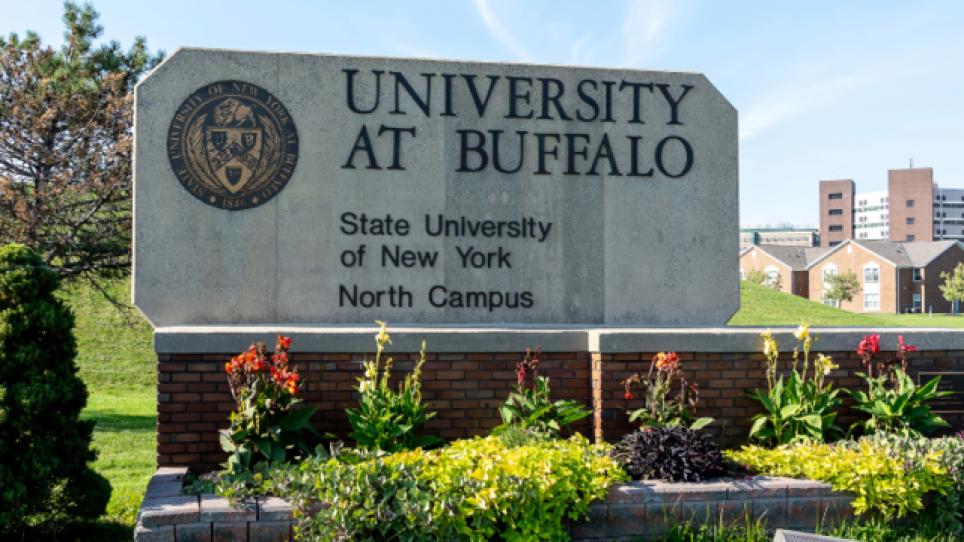
The City University of New York (CUNY) and the State University of New York (SUNY) are putting an end to their emergency vaccination mandate for staff, students, and faculty. This move is in line with the federal government's goal to end the Public Health Emergency. After three years of battling the pandemic, this announcement is a much welcomed milestone.
The CUNY mandate will officially end on May 23, which marks the end of the Spring semester for the majority of colleges. Starting with the summer sessions, students will be able to enroll regardless of their vaccination status.
CUNY leaders worked with both city and state health officials to determine whether it was safe to end the vaccination mandate. “We are confident that this is the appropriate time for CUNY to lift the COVID vaccine requirement as a condition of enrollment or employment, though we continue to encourage all students, faculty and staff to stay up to date with vaccinations,” said Chancellor Félix V. Matos Rodríguez.
Throughout the pandemic, we have consistently put health and safety first while balancing it against our core mission of providing access to higher education to the greatest extent possible. We will continue to consult with public health experts, closely monitor data and adhere to all pertinent federal, state and city guidance should policies need to be modified moving forward.
New York’s Acting State Health Commissioner, Dr. James McDonald, is happy with the progress that has been made and wants to start moving forward, “While the pandemic is not over, it is reassuring to see the progress we’ve made. To continue that progress, the Department reminds people that we are fortunate to have easily accessible safe and effective vaccines,” said Acting State Health Commissioner Dr. James McDonald.
High risk individuals such as people 65 and older, as well as younger people with underlying conditions should make sure they are up to date with the vaccine. The Department will continue to consult with CUNY administrators as we monitor the data and align recommendations with those issued by the CDC as we transition out of the Public Health Emergency.
The change in policy will have to be ratified by the CUNY Board of Trustees. If the change is approved as expected, it will affect 22 CUNY college campuses along with employees at the Central Office. SUNY operates 64 campuses, and the mandate removal is expected to affect them all.
In the past few months, New York has made significant progress with respect to COVID-19. Rates of infection are consistently declining while vaccination rates are up and there are fewer cases of the more severe variants. Vaccination rates (primary series) in the five major boroughs are as follows:

In January 2022, infection rates in New York peaked with a 7-day average of about 41,897 cases. In the spring of 2023, these rates have dropped to a 7-day average of under 400. This represents a 92% drop in reported cases. Perhaps even more reassuring is the fact that COVID related deaths and hospitalizations are down 80%.
Originally, the mandate was instituted in the fall of 2021 and required that students show proof of vaccination in order to sign up for classes. During that time, classes were still being held in-person or as a hybrid of online and in-person. The mandate also applied to all faculty and staff. Anyone who received a medical or religious exemption or was not willing to share their vaccination status had to be tested every week for COVID-19.
Since the mandate will be lifted, CUNY will also be ending its testing program and shutting down on-campus testing sites. In addition, the university will stop using its Cleard4 health verification platform. Colleges will be able to revert back to their standard process for regulating campus access.
These changes come over three years after CUNY 300,000 staff, faculty, and students transitioned to remote learning within the course of a week. CUNY is the largest urban public university and was considered the epicenter of the pandemic. Once campuses closed, the CUNY community turned their attention to helping others.
In fact, the Chancellor started an emergency fund for students even before the federal government started disbursing funds.
The university also launched other campaigns to increase vaccination rates. The #VaxUpCUNY movement worked to get students to on-campus vaccination sites and administer over 500,000 shots. Meanwhile, faculty was working on COVID research and creating new COVID-related course materials and curriculum. Nursing and med students were battling the virus on the frontlines. Unfortunately, the university’s community did not go untouched by the pandemic, and there were many losses. A Memoriam webpage was created to pay tribute to those who passed.
